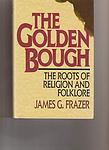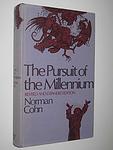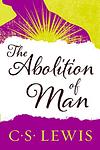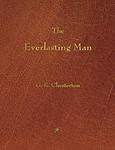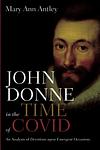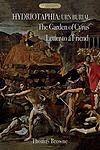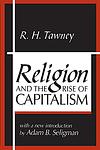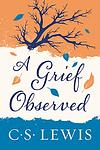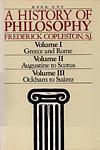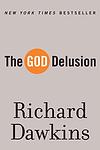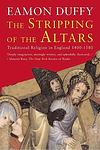The Greatest British "Nonfiction, Religion & Spirituality" Books of All Time
Click to learn how this list is calculated.
This list represents a comprehensive and trusted collection of the greatest books. Developed through a specialized algorithm, it brings together 305 'best of' book lists to form a definitive guide to the world's most acclaimed books. For those interested in how these books are chosen, additional details can be found on the rankings page.
Genres
The category of "Religion & Spirituality" encompasses books that explore various belief systems, practices, and experiences related to religion and spirituality. This includes books on different religions, such as Christianity, Islam, Buddhism, and Hinduism, as well as books on spiritual practices like meditation, yoga, and mindfulness. The category also includes books on personal growth, self-help, and inspirational stories that draw from religious and spiritual traditions. Overall, the category of "Religion & Spirituality" offers a diverse range of books that explore the human experience of seeking meaning, purpose, and connection with something greater than oneself.
Countries
Date Range
Reading Statistics
Click the button below to see how many of these books you've read!
Download
If you're interested in downloading this list as a CSV file for use in a spreadsheet application, you can easily do so by clicking the button below. Please note that to ensure a manageable file size and faster download, the CSV will include details for only the first 500 books.
Download-
1. Mere Christianity by C. S. Lewis
"Mere Christianity" is a theological book that explores the common ground upon which all of those of Christian faith stand. It provides an intellectual defense of Christianity that centers on the Law of Nature, arguing that God is behind this law. The book also explores Christian values, the cardinal virtues, and the theological virtues, ultimately arguing for the reasonableness of Christianity. The final section of the book discusses the doctrine of the Trinity and the process of becoming a Christian.
The 803rd Greatest Book of All Time -
2. The Golden Bough by James George Frazer
"The Golden Bough" is a comprehensive study on mythology and religion, exploring the common themes found in different cultures around the world. The author uses a wide range of sources to argue that human belief progressed through three stages: primitive magic, replaced by religion, which in turn was replaced by science. The book delves into various rituals and customs, including the concept of the dying god in mythology and the role of fertility rites in agriculture. The author's theories have had a profound influence on both literature and anthropology.
The 822nd Greatest Book of All Time -
3. Orthodoxy by G. K. Chesterton
"Orthodoxy" is a classic work of Christian apologetics that explores and defends the beliefs that are central to Christian faith. The author presents his personal journey towards faith, arguing for the reasonableness of Christianity. He challenges popular assumptions of his time about religion, faith, and the world while presenting a compelling case for orthodox Christian belief, using both logic and wit. The book combines personal anecdotes, historical critique, and philosophical discourse to present a deeply intellectual and sincere exploration of Christianity.
The 1024th Greatest Book of All Time -
4. The Pursuit of the Millennium by Norman Cohn
This book provides a comprehensive historical analysis of millenarian movements in Europe from the 11th to 16th centuries. It delves into the social and psychological factors that led to the rise of these movements, which were characterized by the belief in an impending apocalypse followed by a new, heavenly order on earth. The author examines a number of these movements in detail, including the Crusades, the flagellant movements, and the Anabaptist kingdom of Münster, and argues that these millenarian ideologies were often used to justify violence and social revolution.
The 1458th Greatest Book of All Time -
5. The Abolition of Man by C. S. Lewis
This philosophical book explores the concepts of objective value and natural law, arguing that these are essential for moral reasoning. The author criticizes modern education for producing "men without chests," by which he means individuals who deny the importance of moral absolutes. He suggests that this could lead to the "abolition of man" as we traditionally understand him, replacing moral individuals with conditioned responses. The book also discusses the dangers of scientific advancement without moral considerations.
The 1735th Greatest Book of All Time -
6. The Everlasting Man by G. K. Chesterton
"The Everlasting Man" is a Christian apologetics book that explores the spiritual journey of mankind, arguing against both evolution and atheism. The author divides human history into two parts: before and after the arrival of Jesus Christ. He presents humanity as a unique creature in the universe, distinct from both animals and angels, and argues that Christianity, rather than being a product of its time, is the central force that shaped Western civilization. The book is a rebuttal to H.G. Wells' "Outline of History," which presented human life and the universe from a secular perspective.
The 2614th Greatest Book of All Time -
7. Devotions upon Emergent Occasions by John Donne
"Devotions upon Emergent Occasions" is a collection of meditations and prayers written by a renowned metaphysical poet during a period of severe illness. The work is divided into 23 sections, each corresponding to a specific stage of the illness. It explores themes such as mortality, spiritual faith, and the relationship between the body and the soul. The book is best known for its profound reflections on human condition and its famous line "No man is an island," emphasizing the interconnectedness of all human beings.
The 3279th Greatest Book of All Time -
8. Hydriotaphia, Urn Burial by Sir Thomas Browne
"Hydriotaphia, Urn Burial" is a reflective, philosophical work exploring mortality, the inevitability of death, and the human struggle to understand the universe. The author delves into the customs and rituals of different cultures surrounding death and burial, using the discovery of ancient burial urns as a starting point. The text is a profound meditation on death, the fleeting nature of life, and the human desire for immortality. It also explores the mysteries of the universe, the limits of human knowledge, and the uncertainty of life after death.
The 3279th Greatest Book of All Time -
9. Religion And The Rise Of Capitalism by R. H. Tawney
"Religion and the Rise of Capitalism" is a comprehensive exploration of the historical relationship between the development of capitalism and the evolution of religious thought, particularly Protestant Christianity. The author delves into the moral and ethical dimensions of capitalism, arguing that its growth was significantly influenced by certain religious ideas. The book also discusses how religious beliefs have shaped economic systems and societal norms, and how these, in turn, have impacted religion.
The 3437th Greatest Book of All Time -
10. Grief Observed by C. S. Lewis
This book is an intimate exploration of a man's grief after the loss of his wife. The author delves deeply into the nature of grief, faith, and love, questioning his own beliefs and grappling with profound feelings of loss and sorrow. With raw honesty, he shares his journey through the various stages of grief, ultimately finding a renewed sense of faith and understanding of God's role in human suffering.
The 3791st Greatest Book of All Time -
11. Religion and the Rise of Western Culture by Christopher Dawson
"Religion and the Rise of Western Culture" explores the deep influence of Christianity on the development of Western civilization. The author examines how Christianity shaped the cultural, political, and social aspects of Europe, particularly during the Middle Ages, and how it played a crucial role in the rise of the West. The book provides a comprehensive analysis of the interplay between religion and culture, highlighting the profound impact of religious beliefs on the evolution of Western society.
The 5738th Greatest Book of All Time -
12. A History of Philosophy by Frederick Charles Copleston
This book is a comprehensive overview of Western philosophy, starting from the Pre-Socratic philosophers to contemporary thinkers. It meticulously traces the evolution of philosophical thought, providing in-depth analysis of key figures and their contributions. The book also critically examines various philosophical doctrines, their influences, and their relevance to contemporary society. It's a valuable resource for anyone interested in understanding the origins, developments, and complexities of philosophical ideas.
The 5738th Greatest Book of All Time -
13. The God Delusion by Richard Dawkins
This book is a well-known critique of religion, arguing that belief in a supernatural creator significantly lacks empirical evidence. The author asserts that faith encourages wars and fosters fanaticism. He also challenges the idea that morality can only come from religion, suggesting instead that humans possess innate empathy and cooperation. The book also explores the roots of religion, explaining its evolution as a byproduct of our tendency to assign agency to inanimate objects and forces. Ultimately, the author encourages atheism and a sense of awe derived from science and the natural world.
The 5903rd Greatest Book of All Time -
14. A History of the Crusades by Stephen Runciman
This book offers a comprehensive and detailed examination of the Crusades, a series of religious wars fought in the medieval period. The author delves deep into the political, economic, and social circumstances that led to the wars, the key figures involved, and the long-lasting effects on both the Christian and Muslim worlds. The narrative is both scholarly and engaging, providing a balanced perspective on one of history's most complex and controversial periods.
The 6169th Greatest Book of All Time -
15. The Stripping of the Altars by Eamon Duffy
"The Stripping of the Altars" provides an in-depth look into the religious practices and beliefs of the English people before, during, and after the Protestant Reformation. The book challenges the traditional narrative of a corrupt Catholic Church being replaced by a more pure Protestantism, instead arguing that Catholicism was a vibrant and beloved part of English life. The author uses a wealth of historical evidence to show that the Reformation was a violent rupture rather than a smooth transition, resulting in a profound loss for the people who were forcibly separated from the rituals and traditions that had structured their spiritual lives for generations.
The 6895th Greatest Book of All Time -
16. Seminary Boy by John Cornwell
"Seminary Boy" is a memoir that delves into the author's experiences as a young boy in the 1950s, who is sent to a Catholic seminary with the hope of becoming a priest. The narrative captures the strict and often harsh realities of seminary life, marked by rigorous discipline, religious fervor, and the struggle to conform to the expectations of the Church. As the author grows up within the confines of this institution, he grapples with his faith, the challenges of adolescence, and the dawning realization of the wider world beyond the seminary walls. This coming-of-age story is a poignant exploration of innocence, belief, and the search for personal identity amidst the backdrop of a changing religious landscape.
The 8982nd Greatest Book of All Time -
17. The Reformation by Diarmaid MacCulloch
"The Reformation" is a comprehensive history of the European Reformation, which took place in the 16th and 17th centuries. It explores the religious revolution that led to the split of the Western Church into Protestant and Catholic factions, and how this division influenced the development of Western civilization. The book delves into the political, cultural, and social impacts of the Reformation, providing an in-depth look at its key figures, such as Martin Luther and John Calvin, and the profound changes they brought about in society.
The 9737th Greatest Book of All Time
Reading Statistics
Click the button below to see how many of these books you've read!
Download
If you're interested in downloading this list as a CSV file for use in a spreadsheet application, you can easily do so by clicking the button below. Please note that to ensure a manageable file size and faster download, the CSV will include details for only the first 500 books.
Download
